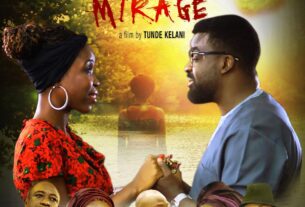For decades, critics and audiences alike have watched Nollywood with a mixture of affection and frustration. We celebrated its energy and creativity while lamenting its technical limitations and sometimes superficial storytelling. However, a significant shift has occurred in recent years—one that signals not just growth, but genuine maturation. This evolution is most clearly visible in Nollywood’s increasing commitment to adapting true stories with depth, nuance, and artistic integrity.
The move toward authentic narratives represents more than just a trend; it’s evidence of an industry that has finally found the confidence to tackle complex subjects and the technical capability to do them justice. These films prove that Nollywood has evolved from an industry primarily focused on entertainment to one capable of serious cultural commentary and historical preservation.
Beyond Entertainment: The Mark of Mature Cinema
The transformation is unmistakable when we examine films like “76” (2016) and “Half of a Yellow Sun” (2013). These aren’t the melodramatic productions that once defined Nollywood’s output. Instead, they represent sophisticated filmmaking that treats sensitive historical subjects—military coups and civil war—with the gravity and nuance they deserve. Director Izu Ojukwu’s approach to the 1976 coup attempt in “76” demonstrates a level of political maturity that would have been unthinkable in earlier Nollywood productions.
This shift toward complex subject matter reflects an industry that no longer feels compelled to oversimplify for its audience. Films like “October 1” (2014), which explores Nigeria’s independence through the lens of a murder mystery, show filmmakers confident enough to trust viewers with layered narratives that require active engagement rather than passive consumption.
Technical Excellence Meets Authentic Storytelling
The maturation isn’t just thematic—it’s technical. “93 Days” (2016) brought Hollywood production values to a distinctly Nigerian story, proving that local filmmakers could match international standards when telling stories close to home. The film’s portrayal of Nigeria’s fight against Ebola combined medical accuracy with compelling drama, creating cinema that could stand alongside the best international medical thrillers.
This technical sophistication extends to films like “Citation” (2020), where Kunle Afolayan’s precise direction and Temi Otedola’s nuanced performance tackled sexual harassment in universities with a delicacy that earlier Nollywood might have handled clumsily. The film’s success demonstrated that Nigerian cinema could address MeToo issues with the same thoughtfulness found in international productions, while maintaining its distinctly African perspective.
Courage to Confront Uncomfortable Truths
Perhaps most significantly, these true-story adaptations reveal an industry with newfound courage. “Dry” (2014) saw Stephanie Linus not only star in but write and produce a film about child marriage—a subject that many filmmakers might avoid as too controversial or commercially risky. The film’s success proved that audiences were ready for cinema that challenged rather than merely entertained.
“Oloture” (2019) took even greater risks by adapting journalist Tobore Ovuorie’s investigation into human trafficking. This Netflix production showed that Nollywood could create content worthy of global streaming platforms while addressing Nigeria’s darkest social issues. The film’s international success validated the industry’s maturation on a global stage.
From Local to Universal: The Global Recognition Factor
The international recognition these films have received tells a crucial story about Nollywood’s evolution. “The Milkmaid” (2020) became Nigeria’s submission to the Academy Awards, while films like “Half of a Yellow Sun” attracted international stars like Chiwetel Ejiofor and Thandiwe Newton. This global attention isn’t just about star power—it reflects an industry producing content that resonates beyond Nigerian borders.
“A Soldier’s Story” (2015) and “Water of Gold” (2021) demonstrate how Nigerian filmmakers can address local issues—terrorism and environmental destruction—in ways that speak to universal themes of justice, sacrifice, and community resilience. This ability to make local stories globally relevant is perhaps the clearest sign of cinematic maturity.
What This Evolution Means for Nigerian Cinema
This shift toward true-story adaptations represents several crucial developments in Nollywood’s maturation process. First, it shows an industry with increased access to better funding, allowing filmmakers to invest in proper research, quality production values, and longer development timelines that these complex stories require.
Second, it demonstrates growing confidence in Nigerian audiences. Rather than assuming viewers only want escapist entertainment, filmmakers are creating content that assumes intelligence, emotional maturity, and cultural awareness. This respect for the audience has resulted in more sophisticated storytelling across the industry.
Third, these films reveal an industry beginning to understand its cultural responsibility. By preserving historical events like the civil war, independence, and military coups through cinema, Nollywood is positioning itself as a guardian of national memory. This cultural stewardship role represents a significant evolution from an industry once criticised for lacking social consciousness.
The Technical and Artistic Leap
The production quality of these true-story films also signals technological and artistic advancement. Compare the cinematography in “Water of Gold” or “The Milkmaid” to Nollywood productions from even a decade ago, and the improvement is dramatic. Sound design, editing, and visual effects have all reached standards that allow these films to compete internationally.
More importantly, the writing has evolved dramatically. The complex characterisations in “Citation” or the nuanced political commentary in “76” show screenwriters grappling with sophisticated themes rather than relying on simple good-versus-evil narratives. This artistic maturation enables the industry to tackle the kind of morally complex true stories that make for compelling cinema.
Challenges and Future Directions
However, this maturation process isn’t without challenges. The commercial pressure to maintain broad appeal sometimes conflicts with the artistic integrity required for authentic storytelling. Some films struggle to balance entertainment value with educational responsibility, occasionally resulting in productions that satisfy neither goal completely.
Additionally, the focus on true stories, while artistically valuable, shouldn’t overshadow the need for original narratives. A truly mature film industry requires diversity in both factual adaptations and imaginative storytelling.
Nollywood The Road Ahead
The success of these true-story films should encourage Nigerian filmmakers to continue pushing boundaries. There are countless Nigerian stories—from the oil boom of the 1970s to contemporary technological innovations—that could benefit from thoughtful cinematic treatment. The industry now has the tools, talent, and audience trust necessary to tackle even more ambitious projects.
Moreover, this maturation opens opportunities for co-productions and international collaborations that could further elevate Nigerian cinema’s global profile. When international partners see the sophistication of films like “93 Days” or “Oloture“, they recognise an industry ready for serious investment and collaboration.
A New Chapter for Nollywood
The embrace of true-story adaptations represents more than just a genre preference—it signals Nollywood’s transition from adolescence to maturity. These films demonstrate that Nigerian cinema has developed the confidence to examine its own society critically, the technical capability to compete internationally, and the artistic vision to transform real events into compelling narratives.
This maturation benefits not just the film industry, but Nigerian culture as a whole. When cinema can thoughtfully preserve history, honestly examine social issues, and artistically interpret national experiences, it becomes a vital cultural institution rather than mere entertainment.
As we look toward the future of Nigerian cinema, these true-story films serve as both achievement and promise. They show us what Nollywood has become and hint at what it might yet accomplish. The industry that once struggled for respect has earned it through the simple but powerful act of telling Nigerian stories with the sophistication, honesty, and artistry they deserve.
The question now isn’t whether Nollywood can produce quality cinema—these films have answered that decisively. The question is how this mature industry will use its newfound capabilities to continue illuminating the Nigerian experience for audiences both at home and around the world.



